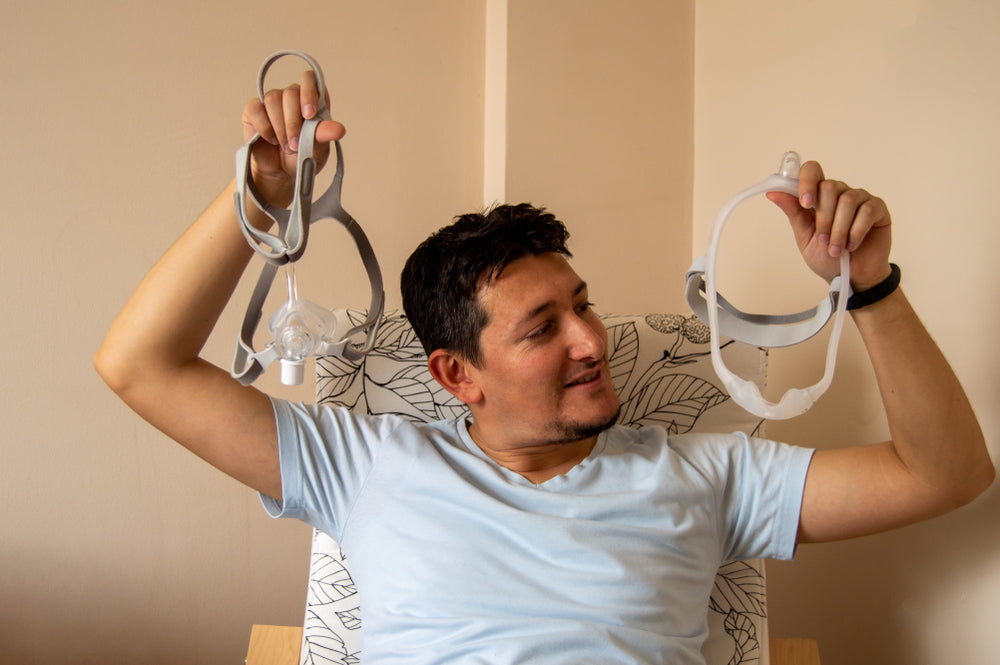Determining the right CPAP mask is one of the most important steps in managing your sleep apnea with continuous positive airway pressure (CPAP) therapy or with automatic positive airway pressure (APAP). With a variety of options on the market, it can be hard to know which is best since there isn’t a one-size-fits-all option that is preferred by all patients. Finding a suitable sleep apnea mask comes down to understanding your breathing needs, matching your sleeping habits, and ensuring comfort throughout the night.
The team at ApneaMed has put together a comparison of CPAP nasal masks and full face masks to help guide you through the selection process and find the perfect solution for your needs.
CPAP Nasal Mask
A less bulky option, the CPAP nasal mask sits under the patient’s nose and is securely held in place with straps that go around the head. The nasal mask delivers an indirect airflow to the patient’s airway and is ideal for nose-breathers. Let’s examine some of the benefits and drawbacks of opting for a CPAP nasal mask.
Benefits
Patients using a CPAP nasal mask will experience many benefits, including:
- Comes in a variety of options to fit all size and shape noses
- Enhances comfort for those who sleep on their side
- Stays in place for those who move in their sleep
- Provides an indirect and natural airflow to the airway
Drawbacks
While the CPAP nasal mask works for most patients, there are some cons to consider:
- Unable to effectively provide airflow to those with sinus problems, a cold, or a history of allergies
- Doesn’t work well for mouthbreathers unless modified with a chin-strap
- Can be ineffective for patients with medical conditions like a deviated septum or enlarged turbinates
- Doesn’t work on those with facial hair because the mask is unable to seal properly
CPAP Full Face Mask
While the CPAP nasal mask rests beneath the nose, a full face mask is larger and covers the patient’s entire mouth and nose. This mask creates a seal over both airways to effectively provide airflow into the airways. If you’re considering a CPAP full face mask, examine both the pros and cons before making your decision.
Benefits
CPAP full face masks offer many advantages for patients, such as:
- Effectively provides airflow to patients even when their nose is congested (i.e. from a cold, allergies, or other nasal obstructions)
- Works well for those who breathe through their mouth while they sleep
- Makes high-pressure airflow settings more tolerable because the pressure is less direct
Drawbacks
Like all decisions, there are always some cons to consider as well:
- Air leakage can occur because of the larger surface area, which can lead to problems like dry eyes
- Limits the positions a patient can comfortably sleep in and is ideal for back sleepers but not those who sleep on their stomach or side
- The bulkiness makes it difficult for patients to wear the mask before bed while reading or watching TV

